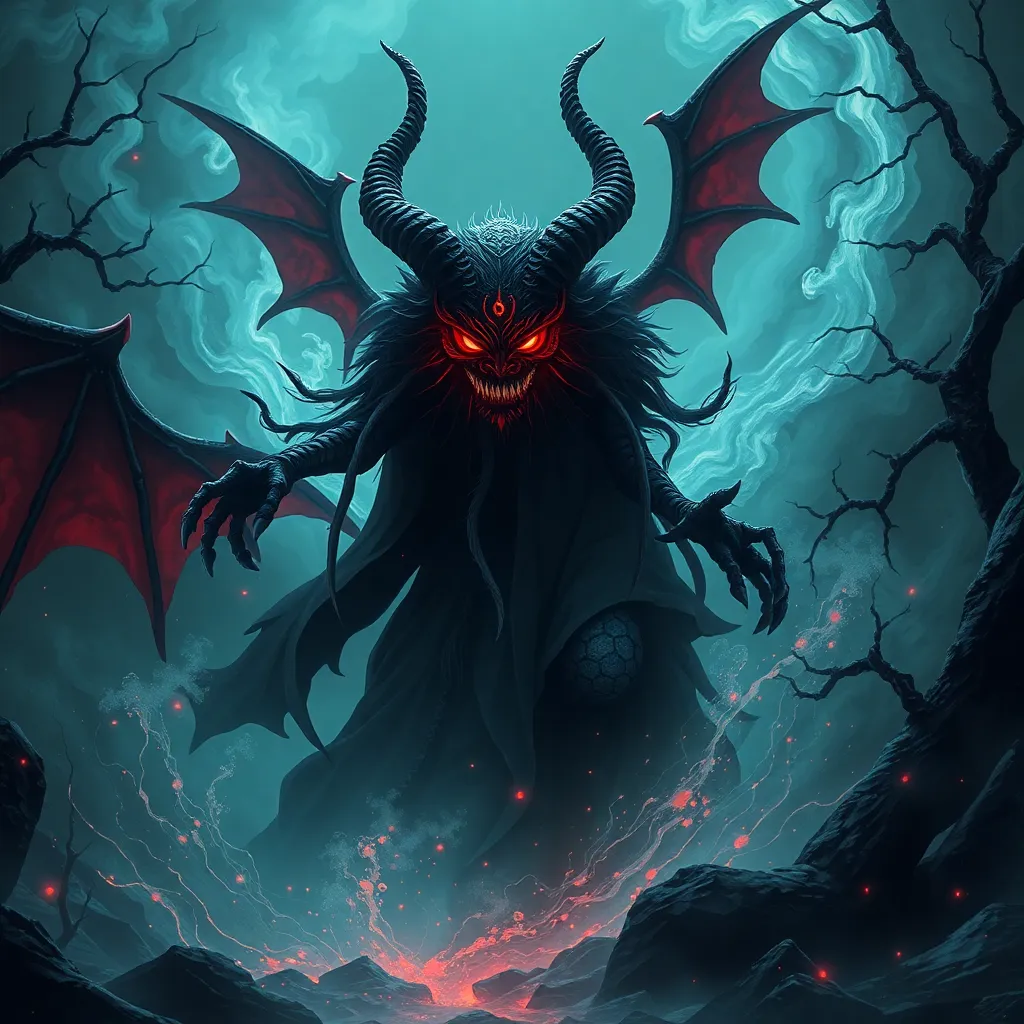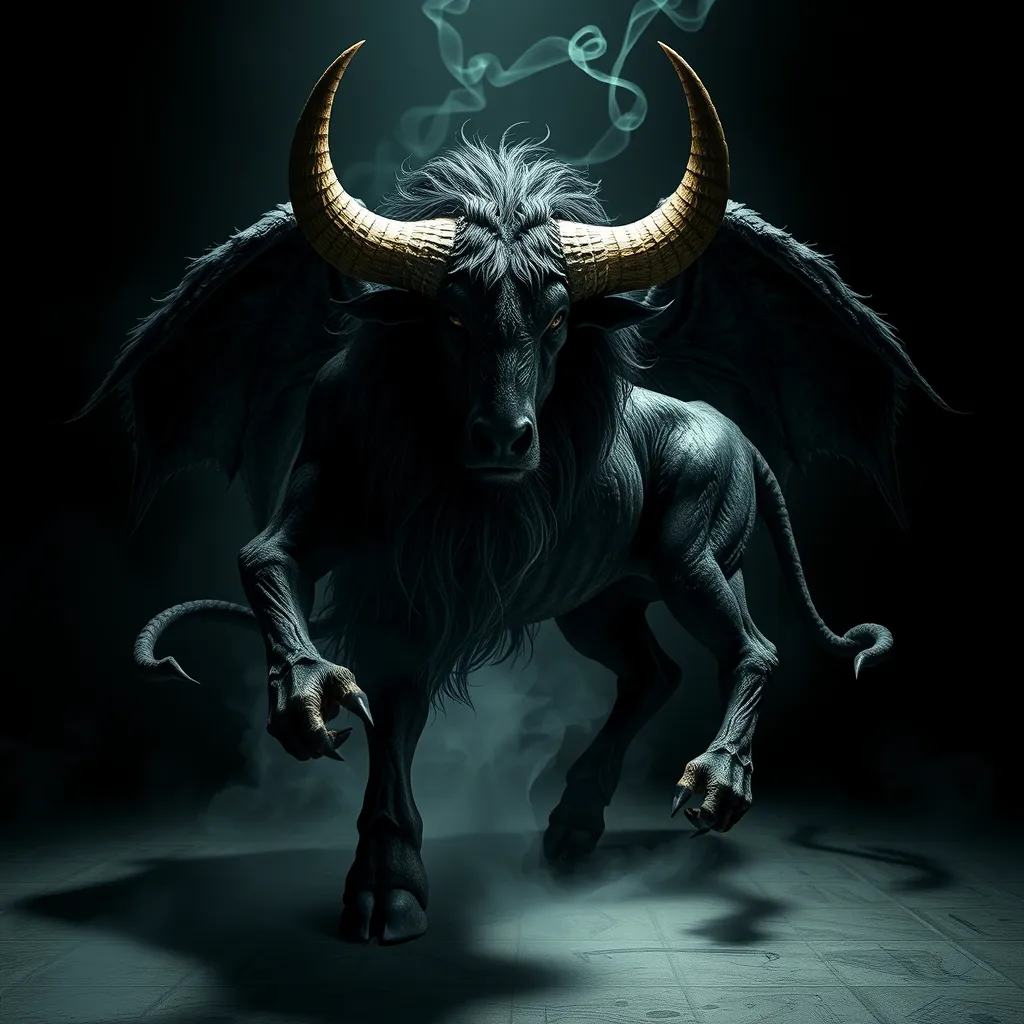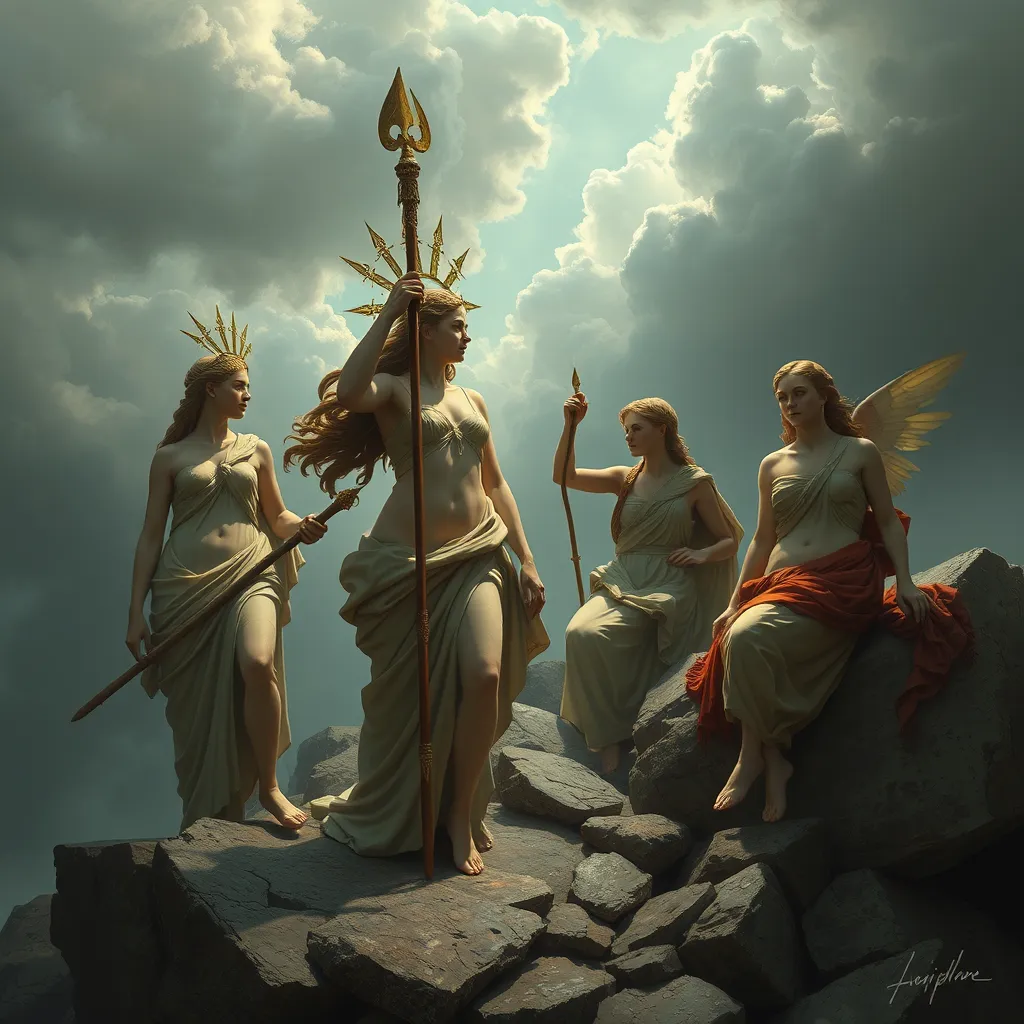The Empusa’s Tale in Japanese Folklore: Discovering the Demon’s Influence in Japanese Myths and Legends
I. Introduction to the Empusa in Japanese Folklore
The Empusa is a fascinating figure within the tapestry of Japanese folklore. Often classified among the myriad of demons and spirits that populate Japanese mythology, the Empusa embodies the complex relationship between humanity and the supernatural. As a mythical entity, the Empusa serves not only as a source of fear but also as a symbol of cultural beliefs and societal values.
Demons hold significant sway in Japanese culture, representing various aspects of human existence, including morality, fear, and the unknown. They often embody the struggles that people face and the moral dilemmas encountered in daily life. This article aims to delve into the tale of the Empusa, exploring its historical context, characteristics, and cultural influence.
II. Historical Context of Demons in Japanese Mythology
To understand the Empusa’s place in folklore, it is essential to explore the origins of demons in ancient Japanese beliefs. Historically, these entities were used to explain natural phenomena, misfortunes, and the complexities of human emotion. Early Japanese texts, such as the “Nihon Shoki” and the “Konjaku Monogatari,” document various demonological beliefs, showcasing the diverse interpretations of these supernatural beings.
The Empusa, in particular, fits into a broader hierarchy of demons found in these texts. Often depicted as shape-shifting beings, Empusas are said to possess the ability to transform into various forms, which allows them to engage with humans in unique ways. This characteristic places them alongside other notable demons, such as the Yuki-onna and the Tengu, who also exhibit transformative abilities.
III. The Nature and Characteristics of the Empusa
The Empusa is often described with distinctive physical attributes. Traditionally, it is depicted as a beautiful woman, luring individuals into a false sense of security before revealing its true form. This duality—beauty masking danger—captures the essence of the Empusa’s nature.
- Physical Descriptions: The Empusa is commonly portrayed with long hair, ethereal beauty, and the ability to shapeshift into an array of forms, including monstrous appearances.
- Behavioral Traits: The Empusa is known for its cunning and deceitful nature. It often preys on unsuspecting individuals, using charm to lure them into perilous situations.
- Regional Variations: Different regions of Japan present variations of the Empusa, with some stories emphasizing its malevolent traits while others highlight its more neutral or even protective aspects.
IV. The Empusa’s Role in Folktales and Legends
Numerous folktales feature the Empusa, each contributing to the demon’s complex narrative. One notable story involves a traveler who encounters the Empusa in a desolate area. Initially enchanted by its beauty, the traveler soon discovers the true nature of the entity, leading to a moral lesson about the dangers of superficial allure.
The symbolism associated with the Empusa is rich and varied. Common themes include:
- Deception and the dangers of trusting appearances.
- The complexity of human emotions, particularly fear and desire.
- The consequences of unchecked curiosity and temptation.
When compared with other demon figures, the Empusa shares similarities with entities such as the Yuki-onna, who also embodies the interplay of beauty and danger. However, the Empusa’s unique attributes and stories set it apart, illustrating the diverse ways demons are represented in Japanese folklore.
V. The Influence of the Empusa on Japanese Culture
The Empusa’s presence extends beyond folklore into various aspects of Japanese culture. In art, literature, and theater, the demon has inspired countless representations, often highlighting its dual nature. Traditional Ukiyo-e prints and contemporary manga frequently depict the Empusa, emphasizing its enchanting yet perilous characteristics.
In modern Japanese media, the Empusa has found its way into anime and video games, where it continues to intrigue audiences with its blend of beauty and danger. Moreover, cultural festivals often celebrate these mythical beings, allowing communities to engage with their folklore.
VI. Comparative Analysis with Other Cultural Demons
When examining the Empusa alongside demons from other cultures, several similarities and unique traits emerge. For instance, the concept of a seductive demon can be found in various mythologies:
- Succubus: In Western folklore, the succubus lures men into compromising situations, paralleling the Empusa’s tactics.
- La Llorona: In Latin American culture, this ghostly figure also embodies themes of beauty intertwined with tragedy and danger.
Despite these similarities, the Empusa’s character remains distinct, rooted in the specific cultural context of Japan. Its manifestations and the stories surrounding it offer a unique insight into the psyche of Japanese society and its historical challenges.
VII. Contemporary Interpretations of the Empusa
In modern storytelling, the Empusa continues to capture the imagination of creators and audiences alike. Adaptations in literature, films, and television often reinterpret its characteristics, exploring themes of identity, transformation, and the nature of evil.
Academically, the Empusa garners interest for its relevance in discussions around folklore and cultural identity. Scholars analyze the demon’s role in contemporary narratives, using it as a lens to explore broader societal issues.
The public’s fascination with the Empusa has led to various reinterpretations in contemporary media, showcasing a blend of traditional folklore with modern themes, ensuring its continued relevance in popular culture.
VIII. Conclusion: The Legacy of the Empusa in Japanese Folklore
In summary, the Empusa holds a significant place in Japanese mythology, representing the complex interplay between beauty and danger. Its tales resonate with timeless moral lessons, reflecting the human condition’s intricacies and the societal values of Japan.
The enduring fascination with demons in Japanese culture underscores the importance of these figures in understanding cultural narratives and identity. As we look to the future, the Empusa’s tale will likely continue to evolve, remaining a vital part of folklore studies and cultural discourse.




